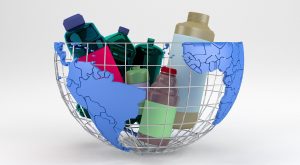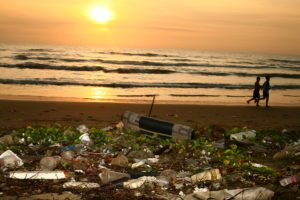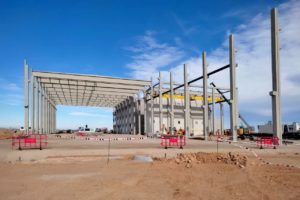Contacto
The term “recycling” should only be applied to processes that transform plastic into plastic. It is key not to confuse this process with other substitutes as there is a risk of contaminating the undoubted benefits of sustainable and clean plastic recycling with other techniques that have little or nothing to do with it.
The petrochemical industry, for example, has popularised other terms, such as “chemical recycling” or “advanced recycling”, which combine both plastic-to-plastic (PTP) and plastic-to-fuel (PTF) transformation and present it as a recycling solution.
For decades, pyrolysis and gasification companies have defined and advertised themselves as an alternative solution to plastic waste without actually having concrete and reliable evidence to support their claims of viability. In spite of this, these technologies have been used since the 1950s and have been trying to use such thermal methods ever since. In the 1970s, they began their attempts to recover plastic waste streams.
These empty promises of the supporters of pyrolysis and gasification have resulted in a long list of failures worldwide, as detailed in reports of fires, explosions and financial losses, included in GAIA’s new report “All Talk and No Recycling: An Investigation of the U.S. ‘Chemical Recycling’ Industry”.
Pyrolysis and gasification companies have been defined as an alternative to plastic waste without any concrete and reliable evidence
Since the beginning of the 2000’s, at least 37 projects have been announced in the United States, most of which are PTPs and the rest PTFs. Of the latter, 14 are merely announcements and 11 are in a pilot or development phase, so almost none have completed the process and reached the commercialisation phase.
Regarding this, from 2017 onwards, the technologies have resulted in at least 2.000 million dollars in useless investments in cancelled or failed projects around the world. In many cases, fragile revenue models, difficulties to obtain permits and excessive operating costs were identified as the main causes of the failure.
Chemical recycling is a health hazard
Plastic is used in a range of products, from bottles and toys to medical equipment and car parts. And to make these products flexible, rigid, non-flammable, durable and non-reactive to certain oils and chemicals, polymer plastic is combined with other elements such as oxygen, nitrogen, chlorine, fluorine or silicon. These elements can be harmful to health and can leave chemical residues that must be removed during the PTF manufacturing process.
Just like oil refineries, some PTF facilities produce a range of chemical product that are then sold to other facilities that manufacture similar products. Thus, contaminants can remain in these finished products and risk being released when they are burned or transformed into new ones.
Traditionally, this process involves the sorting, shredding, cleaning and washing of plastic, which in turn can release substances and wastewater laden with potentially toxic dyes and chemicals that require proper disposal. Therefore, given these factors, exposure to toxic chemicals that are formed and released during the PTF process, as well as toxic chemicals that remain in the final product or in process waste, should be prevented.
Fuel plastic increases toxic contamination
In a survey conducted by the Environmental Integrity Project, researchers, who reviewed EPA data on factory toxic releases in 2018, found that emissions from all industrial facilities reporting to the EPA amounted to 4.7 billion tons.
The 100 most polluting facilities, representing less than 1% of all facilities reporting to TRI, released 1.800 million tons of toxic chemicals, or 38 % of total emissions. Many of these facilities include chemical plants and oil refineries and their locations put 134 million Americans at risk in the event of a toxic chemical disaster.
ÚNETE A NUESTRAS REDES SOCIALES
OTROS ARTÍCULOS
NOTICIAS
NUESTRAS OFICINAS:
- C/ Nuñez de Balboa, 120 E28006 Madrid
- +34 915 625 410
LA FÁBRICA:
- Polígono Industrial Romica, Calle 5 E02007 Albacete (España)
Powered by Viewpoint Communication







